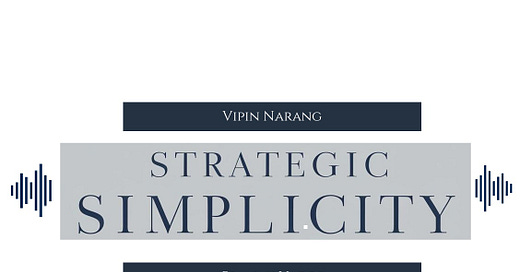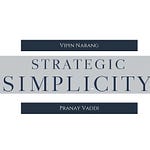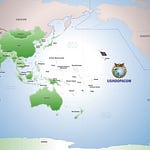We were happy to host Ankit Panda, the Stanton Senior Fellow in the Nuclear Policy Program at the Carnegie Endowment for International Peace, to discuss his new book: “The New Nuclear Age: At the Precipice of Armageddon.” Ankit lays out the features of the new era, including:
allied proliferation and other risks to the nonproliferation regime and norms;
deterrence and strategic stability in a world of endemic technological change; and,
the centrality of nuclear weapons and nuclear strategy to foreign policy and statecraft, among other things.
The three of us then discuss the recent military operation
s by India and Pakistan following the terrorist attack in Pahalgam, whether the recent exchange of air and missile strikes and eventual climb-down from hostilities represent the first “real crisis of the third nuclear age” in South Asia, and concern that a new, higher “floor” has been set for future crises, as the fundamentals—hard to deter terrorist acts and strong domestic political urges to respond as strongly as possible—can lead to a more nuclear-tinged crisis in the future.
Finally, we discuss Ankit’s recent paper with Frank Aum outlining a new approach to North Korea policy, titled: “Pursuing Stable Coexistence: A Reorientation of U.S. Policy Toward North Korea,” where the authors argue that status quo U.S. policy toward North Korea, focused on denuclearization and extended deterrence, has led to a state of dangerous co-existence, typified by an unconstrained growth in North Korea’s nuclear force, Pyonyang’s adoption of a more offensively-focused nuclear doctrine, and exacerbating crisis escalation risks. Instead, they argue, the United States should tolerate North Korea’s nuclear arsenal in the near term, recognize that managing threats exclusively through deterrence is presenting unacceptable risks to U.S. and allied interests, and bring South Korea into this strategy as a means by which to reduce overall tensions and the risk of nuclear war on the peninsula. Over time, with this approach, the authors feel U.S. deterrence requirements for the Korean Peninsula may wane and allow for a prioritization of other Indo-Pacific challenges in line with the current Administration’s thinking.
Later this week, Vipin and I will host John Warden, a former NSC director for strategic stability and arms control, and Bob Peters, the Senior Research Fellow for Strategic Deterrence at the Heritage Foundation (following a long career in government), to have a “blue sky” conversation about future U.S. nuclear force posture.
Stay tuned.

















Share this post